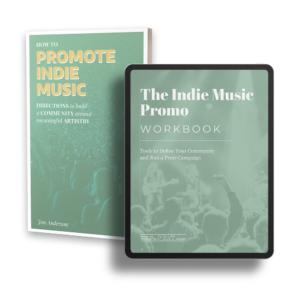So I’ve got kind of an awkward question for you…
How much money do you make?
(With music.)
If you trust me enough to share the answer to that, take this quick two-minute survey.
It’s only seven questions and your answers will be totally anonymous (no email / name).
I’ll be sharing the cumulative data from this down the road.
If you’re wondering where I got the gall to ask such a personal question, here’s the backstory:
Let’s say you’re into music marketing (the internet discovered a long time ago that I am).
You will inevitably get sucked into ad algorithms pushing people who are foaming at the mouth to show you their “number one strategy” for making money with music.
Some of these people / strategies are really good.
Some of these people / strategies are really bad.
Most are in between.
Anyway, as you may have gathered, I see a lot of these. And most of the time I get caught up in the “micro” of what people are selling.
Do the tactics they’re talking about seem legit? Should I try these things for my artists? Should I buy their course?
But this week I was wondering about the “macro”…
Like, how many people are successfully doing this – actually making a living from music?
I’ve looked at the data before, but, I’ll be honest, numbers slip out of my head like this football out of Ben Roethlisberger’s hand. So this week I dug back through the data again. Turns out, it’s fairly disheartening.
Depending on which study you look at, you’ll see that the average working musician makes between $20-35K USD.
That’s not a ton (and it’s before taxes, too). Yikes, right?
But then there are a lot of caveats to this, too. Some of the data’s really old, for one thing; two of the most commonly-cited studies are from 2011 and 2014.
2011 was another life. I was about to graduate high school, didn’t have a smartphone, and still wore Aeropostale t-shirts. By 2014, two of those things had changed, but the data from then is still nearly irrelevant.
Even in the more recent data, it’s tough to qualify what’s meant by “indie” and “working musician.” For example, Statista says there were only 1,560 full-time US indie artists in 2019, while census data tabulated >700K musicians in the States – so I guess basically everyone is part time?
It’s very confusing.
The point is that there are a million different ways to earn money as an artist and a million different ways to slice the data.
And that brings me to you.
Because I guess what I’m most interested in isn’t sorting out the macro view of the indie artist market (although I definitely am kinda interested in that).
What I’m most interested in is what “making money from music” is actually like for the people on this email list.
Because I think it’s helpful to have transparency.
Let’s say that generating income from your music is important to you…
- If you know what other musicians are making, you can set realistic goals.
- If you know how people are generating income, you can focus on the activities that are working (and avoid spending money on the “number one strategies” that aren’t actually all that successful on a macro level).
The music industry is notoriously opaque. After watching another hype video for a secret tactic that probably won’t work, I found myself thinking…
Let’s make things a little clearer.
Here’s the survey link again.
No pressure to fill it out (I know money is personal).
But also, the more data, the better. So feel free to share it with any artist friends, too. You can forward this email or just copy and paste this link: https://forms.gle/u78NWB8upJGWwVPk9
Either way, remember: Making money with music is awesome.
But the truly awesome thing about making music is that it’s worthwhile even if it costs you.
Thanks for sharing, if you do, and thanks for reading, as always.

